Due to the increasing popularity of eBooks, we are no longer offering printed versions. You may download and print the PDF versions offered with each book or select an Ebook below. Chose Mobi if you have a Kindle; otherwise select Epub.
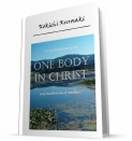
One Body in Christ
by Kokichi Kurosaki
A Christian classic, as relevant today as when it was written. Kurosaki (1886-1970) speaks from life-long experience with fellow believers, assuring us that this seemingly fantastic and abstract idea can be realized in actual experiene as it has been for many years in Japan.



The New Creation Rule: He Makes All Things New
by George Davis and Michael Clark (2010, 158 pages)
If you are in Christ, your involvement with God goes far beyond "becoming a Christian" or "joining a church." You are called to be a new creation. Regardless of color, gender or race, you have been begotten of the Father into one new humanity that is other worldly in nature-old things have passed away; behold, all things have become new. If you are in Christ you have been divinely baptized into one body by one Spirit. That body is not governed by man's laws of organization, but by the life and nature of the One who created it. Your hope of righteousness does not rest in personal piety but in the divine nature that has been placed within you. You owe everything you are and everything you ever will be to your Creator. You are His ongoing workmanship. He who began the work in you will finish it to the praise of His glory.


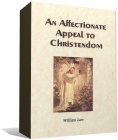
An Affectionate Appeal to Christendom
by William Law; Updated for the modern reader by Michael Clark (2012, 171 pages)
"Aside from the scriptures, An Humble, Earnest, And Affectionate Address To The Clergy of William Law is indisputably among the most spiritually influential of all literary compositions.Men like Charles Wesley, George Whitefield, William Wilberforce, Henry Venn, Thomas Scott, Andrew Murray, and Watchman Nee, were a few of the untold thousands who were directly or indirectly influenced by it. That impact is still felt today....Of all William law's writings, we consider his "Affectionate Appeal" to be the most important. It contains his finial appeal to Christendom. In it he sets forth what he considered to be the most urgent need of the 18th century Church. And if you take the time to read it I am sure you will conclude, as we have, that this address yet speaks to our most pressing need."--From the Introduction by George Davis



Life Into Christ
by Michael Clark and George Davis (2008, 168 pages)
Jesus not only gave His life on the cross to take away our sins, but He gave Himself to us that He might live His life through us. We are not doomed to live out a life of sin in our sin-prone weakness. Paul wrote to the Roman saints, "Know you not that so many of us that were baptized into Jesus Christ were baptized into His death?" Notice the two into's. These are that same word in the Greek, eis. Yes, Jesus died once for all who were placed by the Father into Him, but that is not all....


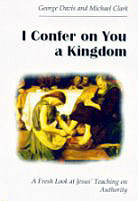
I Confer on You a Kingdom
by George Davis and Michael Clark (2006, 108 pages)
Jesus emptied Himself, made Himself of no reputation and took a humble position a the bottom of the social scale. From there he humbled Himself even further by dying a criminal's death on a Roman cross, not for His own misdeeds but for the sins and sorrows of a world set on destroying Him. Anyone who would be great in the kingdom of God must follow this same path.



The Vast New Covenant Transition
by George Davis and Michael Clark (2006, 122 pages)
Second Revised Edition
God is seeking worshipers who will worship Him in a manner consistent with His being. Millions today are sensing this heavenly call and, like the Christians of old, are going unto Jesus outside the orthodox religious camp, with its fixed structures and man-made traditions.


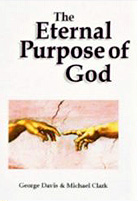
The Eternal Purpose of God
by George Davis and Michael Clark (2005, 184 pages)
God's great priority is, has been, and always will be to bring a people back into a face-to-face fellowship with Him, so they can make His ways known in Spirit and in truth....The call to greatness is a call to come near to God. Only those who have a face-to-face relationship with Him, who know His name, can know His ways and be a holy priesthood unto Him.


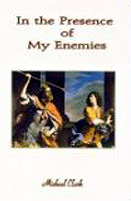
In the Presence of my Enemies
by Michael Clark (2005, 162 pages)
God has prepared a wonderful table filled with spiritual food for us on the far side of the valley of the shadow of death. It is His table prepared in the presence of our enemies. This is a collection of articles written by Michael over a span of several years.


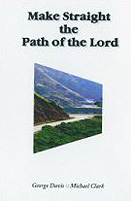
Make Straight the Path of the Lord
by George Davis and Michael Clark (2004, 256 pages)
Each of the fifteen chapters of this book was originally a separate article by George and/or Michael. Each was posted to their websites and sent out on the A Wilderness Voice email subscription list.



Into All Truth
by George Davis and Michael Clark (2004, 80 pages)
This is the reform desperately needed today--living by every word that proceeds, moment by moment, from the mouth of God. We need to stop trying to look and act like the church and allow the Father to birth a corporate expression of His Son in and through us by His Spirit.



"For Freedom Christ Frees Us!"
by George Davis (2004, 60 pages.)
Freedom is the climate man was originally created to function in. Any redemption that fails to restore the dangerous and yet glorious power of unencumbered free choice to man is not redemption at all. Has anything really been restored if man is not brought back to this original condition of freedom? ...The underlying purpose behind Christ's redemptive work is freedom! Nothing less will do.


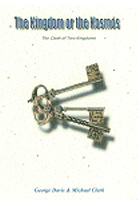
The Kingdom or the Kosmos
by George Davis and Michael Clark (2004, 60 pages)
"Being asked by the Pharisees when the kingdom of God would come, Jesus answered, 'The kingdom of God doesn't come with observation: Neither will they say, "Look here!" or "Look there!" for behold, the kingdom of God is within you,'...The kingdom of God is a heavenly kingdom, governed from heaven, as opposed to the kingdoms of the world, kosmos, which are governed by the god of this world. These two kingdoms are pitted against each other, in competition for the highest prize ever, the souls of mortal men." Will we be content with the Kingdom of Heaven in our lives or will we seek our kingdom in this world?


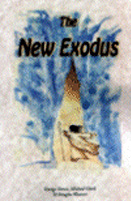
The New Exodus
by George Davis, Michael Clark and Douglas Weaver (2002, 122 pages)
Ever since the rebellion of Adam, the recurrent command to God's people at each new turn of seasons is summed up in one word--GO! God is never pleased with man's inherent tendency to settle and build, because it breeds a lethargic, complacent and ultimately backslidden generation. God is speaking a fresh word of mobilization into the earth today. It's a word of release and exodus, just as it was in the time of Moses. It is imperative that we see our migratory status and what the scriptures say about it from the beginning.


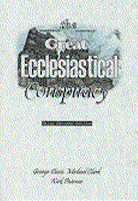
The Great Ecclesiastical Conspiracy
by George Davis and Michael Clark (2003, 80 pages)
Why did the Greek words presbytery (the elderly), apostle (envoy or sent one), and deacon (servant) remain un-translated into the Anglicized form? Why was the Greek word presbuteros (older or elderly) translated priest? Why was the word office added throughout the New Testament when it is not in the Greek text? Why indeed! There is little doubt that these words remained un-translated and others were mistranslated so the clergy could redefine them, interpreting them with the strongest institutional and hierarchical connotations. Was this mere ignorance, or a means of creating a ruling class of super saints? Third revised edition.


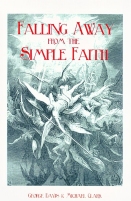
Falling Away from the Simple Faith
by George Davis and Michael Clark (2003, 80 pages)
(includes Unreplacing Jesus)
Many believe that there will be a falling away, yet future, and view those who depart from their ranks as apostate. On the contrary, the falling away has already happened, and there is an ongoing move of God's Spirit to restore what was lost. For it to be otherwise the church would have had to remain pure down through the years, and that would require a total rewriting of history. No, history attests to a radical departure from the faith.


